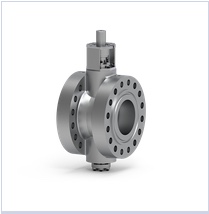Apr-2022
Optimising planned maintenance outages in turnarounds
Maintenance downtime affects the refiner’s bottom line every hour that production is offline, which is when temporary power suppliers can help a facility adhere to a time-dependent maintenance schedule from shutdown to restart.
Rene Gonzalez
PTQ / DigitalRefining Editor
Viewed : 1995
Article Summary
Maintenance intervals can be reduced with advanced planning and expertise for testing and setting up all necessary mobile assets, such as generators and temperature control equipment activated at various phases of a Revamp or planned maintenance. Second only to energy, maintenance costs are a significant portion of every refinery and petrochemical facility’s expense budget.
Maintenance costs
Recognizing the cost of maintenance (or lack of), the refining sector has adopted Best Practices programs for measuring value delivered by mobile power and thermal management suppliers. These programs concentrate on a supplier’s ability to demonstrate first mover status based on the following metrics:
- Adaption of performance enhancement capabilities (remote monitoring, power automation, etc.)
- Environmental stewardship as reflected by emissions-free modular systems (natural gas, diesel and hybrid power driven generators, heat exchangers, chillers, etc.)
- Ability to resolve multiple contingencies and unexpected events by leveraging pre-positioned primary equipment and miscellaneous support systems (e.g., keeping a coker unit operating during a turnaround by “replicating” heat integration)
- Adherence to safe operating procedures based on OSHA, IEEE, and other institutional standards as applied to thermal systems, switchgear, inverters, transformers, etc.
In many plant turnarounds, dependable portable diesel generators have been the “go to” solution for major maintenance projects. However, with corporate-wide mandates for strong environmental stewardship, mobile generation fleets must operate at near-zero emissions while servicing a facility’s maintenance project, calling for an expanded set of options, including natural gas and Tier 4 diesel driven generators and compressors and hybrid solutions.
Startup
With many turnarounds driven by the transition to NZEs, such as with co processing of renewables through an FCC or hydrotreating unit, providing first-mover facilities maintenance management in a dynamic industrial network can be challenging even under the best of circumstances.
For example, unplanned events can occur during a scheduled overhaul of a CDU’s vacuum column, FCC main fractionator and associated rotating equipment (e.g., wet gas compressor, main air blower, etc.). Therefore, pre-project teams can provide plant management with an accurate assessment of necessary mobile equipment, such as outsourcing temporary power and climate control support for multiple stages and duration of plant maintenance.
Flexibility is essential considering all the various subcontractors and equipment moving in and out of a facility during a project. At some point, there may be an additional need for temporary lighting, DCS and UPS power, pumps and other essential electrical equipment.
Tighter standards
Due to changing market dynamics, the need for cooling, heating or dehumidification must be constantly re-evaluated. For example, the need for additional dehumidification capacity at one facility’s utility infrastructure undergoing maintenance became apparent when a temporary structure needed to be erected to house a large generator requiring rewinding.
Almost all low and high complexity refining facilities share temperature control challenges, such as with the need to set up a boiler bypass for interim heating. If a mishap such as a weather-related incident strikes in the middle of a tight maintenance schedule, auxiliary power and heat may be necessary.
Whether powered by generators or fossil fuels, heaters can consume a lot of energy when trying to supply heat to a temporary work site. However, due to increasing occupational, health and safety concerns about the ventilation of gas heaters, plant managers may request safer and more cost-effective alternatives.
Safety first
Engineers with expertise in the application of thermal resources during facility maintenance projects can oversee a wide range of turnaround operational scenarios. But first, adherence to institutional standards such as NFPA-70e Work Practices need to be established that help plant employees and on-site contractors avoid workplace injuries.
Keeping equipment functioning is an essential part of running a facility. Postponement of preventive maintenance may create unsafe conditions in harsh chemical processing environments. If “lesser” components can’t stand up to operating conditions, they can result in risk of shocks or electrocution for workers in the worst case, or they may “simply” cause unplanned or excessive downtime.
A more detailed discussion on turnaround efficiency and safety standards will be discussed in PTQ’s REVAMPS special report scheduled for publication this summer.
If you have any editorial suggestions, please send them to Rene - editor@peroleumtechnology.com
Categories:
Add your rating:
Current Rating: 4

















